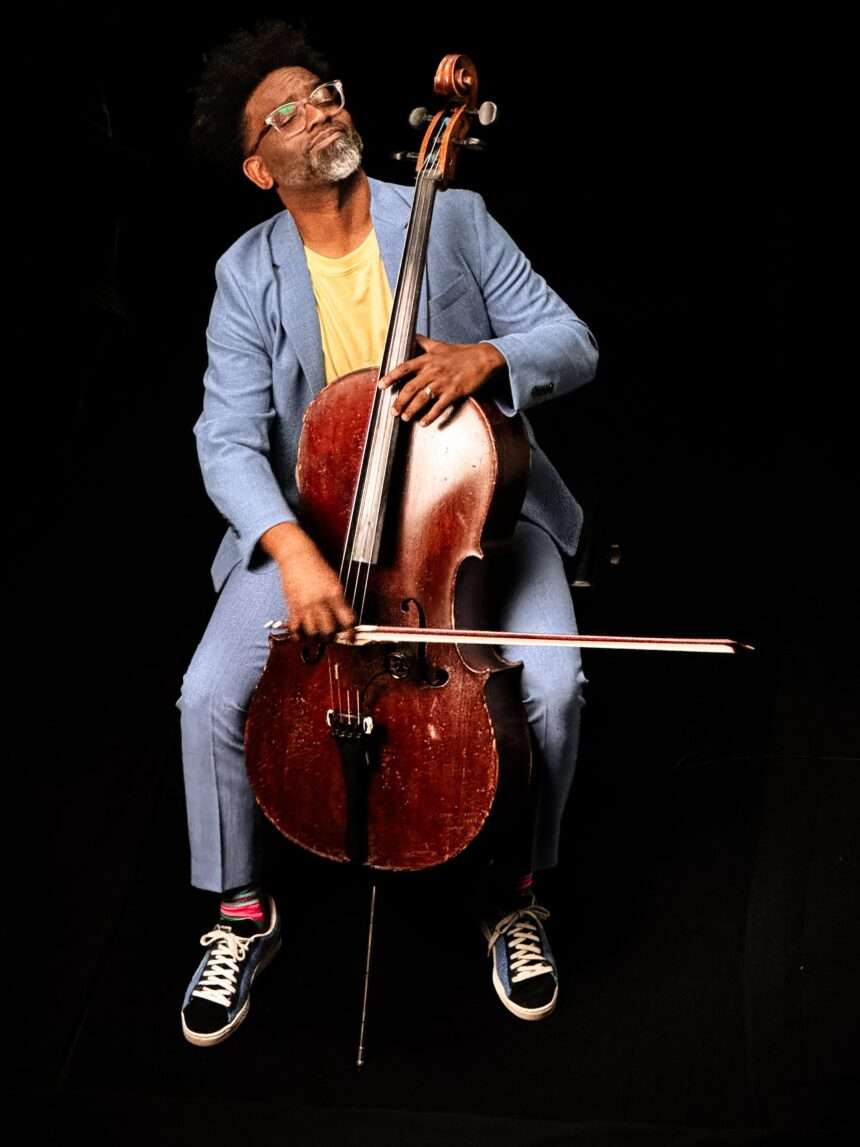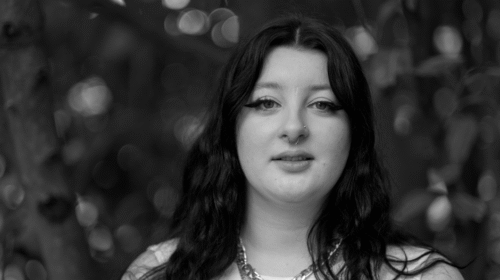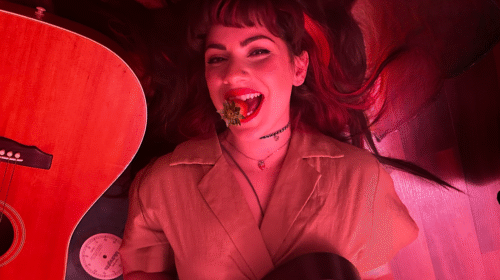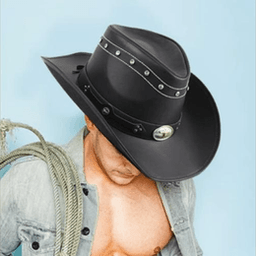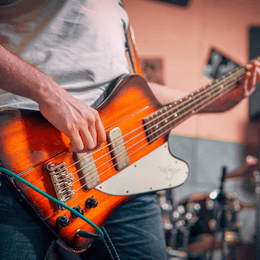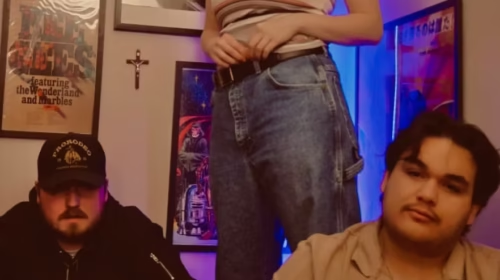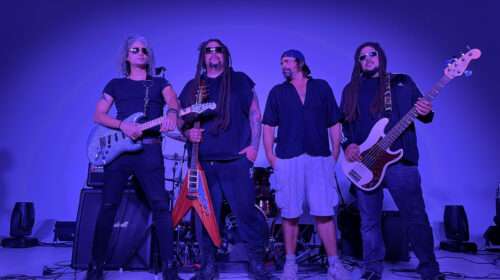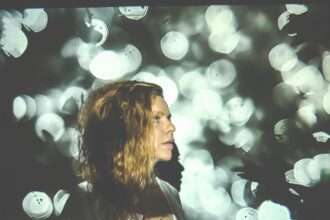In a world that rarely slows down, OkCello invites us to pause, groove, and reflect with his transformative new project Funny How Things Work Out. A cellist, composer, and genre-defying sonic alchemist, OkCello weaves ska, hip-hop, classical, and soul into a vibrant tapestry of sound and spirit, anchored in the rich traditions of the African Diaspora. But beyond musical experimentation lies a deeper current: resilience, self-liberation, and faith in the unseen.
Born from a moment of uncertainty and creative searching, the album’s title track emerged as a personal mantra, a beacon of light during one of the artist’s most trying seasons. With a DIY ethic rooted in improvisation and heart, OkCello channels vulnerability into strength, transforming financial hardship, artistic doubt, and the pressures of independence into a joyous call to dance and dream.
In this intimate conversation, we explore the heartbeat behind Funny How Things Work Out, from Juneteenth inspirations and accidental ska grooves to the reimagining of the cello as a percussive, storytelling force. With unflinching honesty and boundless imagination, OkCello shows us that sometimes the path we didn’t plan leads exactly where we’re meant to be.
“Funny How Things Work Out” is a powerful title—both the song and the album. What does that phrase mean to you personally, especially in the context of your journey over the past year?
The title references my belief that things are often, if not always, conspiring in your favor and on your behalf, even and especially when you can’t see how. It’s something I’m trying to focus on more in recent months. The life of an artist entrepreneur is an up and down one, and the song and the album are essentially a musical mantra to help me to stay positive and focused in those moments when it’s harder. It’s also an invitation not to get too swept up when things are wonderful!
You’ve described the single as a “love letter to summer and liberation.” How did Juneteenth influence the timing, spirit, and message of this release?
The song feels like sunlight to me- a liberating sunlight – the kind of liberation carried in those first few rays of warm Spring sun that change the way you wake up in the morning and face the day. Juneteenth has that same energy. It literally is the acknowledgement of a freedom that gave a sense of hope to my ancestors who were realizing in a specific moment that there was an end to their standard oppressive reality and the beginning of something new, hopefully joyful and liberating. For many, the era after slavery was not that, joyful and liberating, but the moment of hope and expectation that Juneteenth celebrates is the magic of believing in and generating your own freedom.
This track blends ska, hip-hop, and classical crossover. What inspired you to bring these genres together—and how do they reflect your identity and message?
I didn’t set out to write a ska tune. I never really set out to write in any genre. I think I have a practice of playing on my instrument the sounds and song traditions that I like and that move me. I have always liked ska, particularly the one-drop. I think it is an eternally energizing sonic element, and I love a story I heard about how it came into being. In this song it very well may be the pulsing sunlight. But, I like all kinds of music from the African/Black Diaspora, and it’s sometimes a roulette wheel as to what song form/tradition will come through. On this album there are moments of gospel, drum and bass, salsa, jazz, rock, and house, just to name a few of the Diaspora traditions that resonate with me and showed up on this project.
You mentioned that this song changed the direction of the entire album. Can you take us back to that creative breakthrough moment and what it shifted for you?
I stumbled into the foundation of that song. It was a bass line that I arrived upon while sound-checking at a gig, and I saved it on my phone because I thought it would come in handy someday. And like a lot of ideas that I do like that, I immediately forgot about it. At one point, when I was planning and recording the album, I felt that the album needed something that sparkled, something brilliant and light-generating. I went looking through my phone, that folder of recorded ideas to find something that sparkled. I found the bass line, and immediately fell in love again with the progression. I went to work and had a song a day later. It was through that song that I realized that the album is kind of a dance album, with some contemplative songs in the middle. But, Funny gave the album a sonic and thematic focus that not only ultimately shaped the album but also inspired the new title of the album. The former title was going to be Clarion Call – after another song on the album
Creating the track entirely in your home studio is impressive. How does that DIY approach influence the intimacy or authenticity of your music?
All of my songs start/finish in my living room or my office. Practicing for me is improvising, and that’s where all my songs come from. Most of them come when I am messing around on my looper and stumble into something I like. I spend an hour or a week playing with that idea on the looper, and the yield is usually a song. As of late, I have also gone straight to the computer when I find a song idea that I like, and I wake up from that mania at some point with a song. It’s really an organic process that I often have very little control over. In that way, I think that the things that become songs are actually as authentic to themselves as they are to me, as I believe they have a lot to do with birthing themselves, more than my conjuring them up out of the ether.
There’s a strong thread of resilience woven into this song’s story—especially in light of the financial hardship you faced mid-project. How did those challenges shape the final outcome?
Sometimes it’s hard for me to trust the process. It seems my process needs to make me uncomfortable to make me move in the right direction. Maybe I am not as responsive or nimble when I am comfortable. I don’t know. It’s fair to say, though, that I usually end up moving in a really good direction on the other side of discomfort, and I am then glad things unfolded as they did. Sadly, in the middle of the discomfort, I get all doom and gloom and doubtful. That was what happened this summer. And also, resultingly, between August and December, the best things happened to me because of the energy I poured into my art and career after that uncomfortable summer. I don’t want to say that I am consciously resilient, though. I’m working on that. But, I do find that when times are scary, I can lean on my cello, and things somehow end up better. Maybe the song is kind of positioning my cello as a fairy godmother that gets me through the hard stuff I don’t think I can get through. At any rate, the song is about trusting the process, even when it’s uncomfortable, because things often work out, and better than you had hoped or planned for.
The cello isn’t often associated with ska or hip-hop. How do you approach redefining the cello’s role in contemporary Black music and cultural storytelling?
The cello can do everything. It has a dynamic range, a variety of ways to make sound, and a sound quality that is profoundly human. As a result, I believe that the cello can play any and everything. You just have to be curious enough to explore how to make it do what it can do. The looper helps, a lot. But, imagination must precede execution. If it happens that way, the cello will not disappoint. Also, I like to play drums on the cello body. That opens up a variety of dimensions for bringing to life music traditions that are strongly rooted in percussion and rhythm. With that low end, some percussion, some interior mid voices and a high melodic range, you can paint with all the colors of sound.
You talk about the universe working in our favor, even when we don’t see it. Where else in your life or career have you seen that principle show up?
So many places. My relationship with this wonderful woman, to whom I am now married, came out of one of my darkest adult moments. Just recently, we had a massive college financial aid win for my daughter, and prior to that, it looked like it might have otherwise been overwhelming. Most significantly, the career I have as a composing, performing cellist came out of a failed career as a movie producer. I like what I do much better now. I would have hated producing years-long, really expensive projects with which I rarely get to directly engage audiences. No, I love playing shows, and my plans were taking me in a completely different direction. And then, I was course corrected. I thank God for that!
“Funny How Things Work Out” invites listeners to dance, reflect, and rejoice. What do you hope people feel the first time they hear it?
Three things:
I sooo hope some people roll through urban centers in their cars with windows down, nodding head, and bumping the song. That’s the first thing.
I hope people dance. It’s got that ska thing, so in my head I see people moving like they might have at Blues parties in the southern US or the UK.
Finally, I hope that people smile – because they are surprised to hear a cello playing this kind of music, because it feels like sunshine, because there is this sensual dance between two voices in the middle of the song that tells a beautiful and possibly steamy story. I don’t know. But, definitely smile.
Looking ahead, what can fans expect from the rest of the album? Will it continue the themes of liberation and joy, or take us somewhere unexpected?
Yes! Liberation. Joy. Gratitude. A tiny bit of punky angst. Some contemplation.
But mostly, a genuine heartfelt offering of a spectrum of sonic emotions that hopes to leave you better than it found you.And, a new appreciation for what a cello can do!
For music submission, click here


